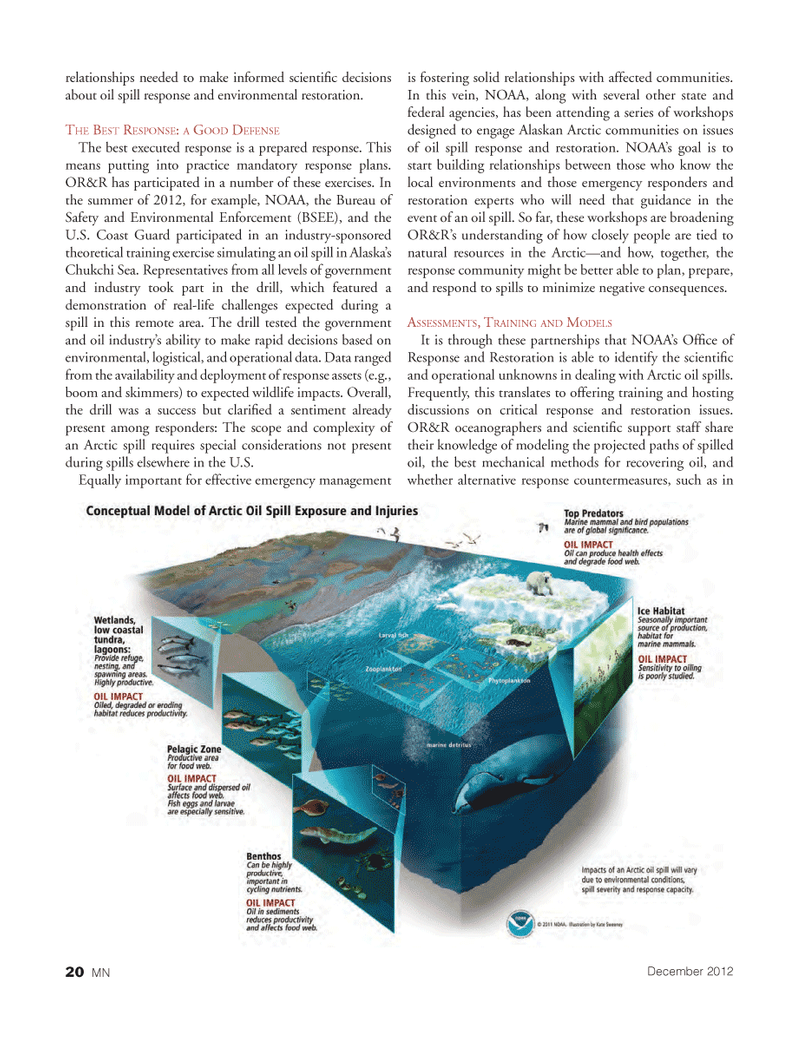
Page 20: of Marine News Magazine (December 2012)
Innovative Products &
Read this page in Pdf, Flash or Html5 edition of December 2012 Marine News Magazine
relationships needed to make informed scientiÞ c decisions about oil spill response and environmental restoration. THE BEST RESPONSE: A GOOD DEFENSEThe best executed response is a prepared response. This means putting into practice mandatory response plans. OR&R has participated in a number of these exercises. In the summer of 2012, for example, NOAA, the Bureau of Safety and Environmental Enforcement (BSEE), and the U.S. Coast Guard participated in an industry-sponsored theoretical training exercise simulating an oil spill in AlaskaÕs Chukchi Sea. Representatives from all levels of government and industry took part in the drill, which featured a demonstration of real-life challenges expected during a spill in this remote area. The drill tested the government and oil industryÕs ability to make rapid decisions based on environmental, logistical, and operational data. Data ranged from the availability and deployment of response assets (e.g., boom and skimmers) to expected wildlife impacts. Overall, the drill was a success but clariÞ ed a sentiment already present among responders: The scope and complexity of an Arctic spill requires special considerations not present during spills elsewhere in the U.S. Equally important for effective emergency management is fostering solid relationships with affected communities. In this vein, NOAA, along with several other state and federal agencies, has been attending a series of workshops designed to engage Alaskan Arctic communities on issues of oil spill response and restoration. NOAAÕs goal is to start building relationships between those who know the local environments and those emergency responders and restoration experts who will need that guidance in the event of an oil spill. So far, these workshops are broadening OR&RÕs understanding of how closely people are tied to natural resources in the ArcticÑand how, together, the response community might be better able to plan, prepare, and respond to spills to minimize negative consequences. ASSESSMENTS , TRAINING AND MODELSIt is through these partnerships that NOAAÕs OfÞ ce of Response and Restoration is able to identify the scientiÞ c and operational unknowns in dealing with Arctic oil spills. Frequently, this translates to offering training and hosting discussions on critical response and restoration issues. OR&R oceanographers and scientiÞ c support staff share their knowledge of modeling the projected paths of spilled oil, the best mechanical methods for recovering oil, and whether alternative response countermeasures, such as in 20 MNDecember 2012

 19
19

 21
21
